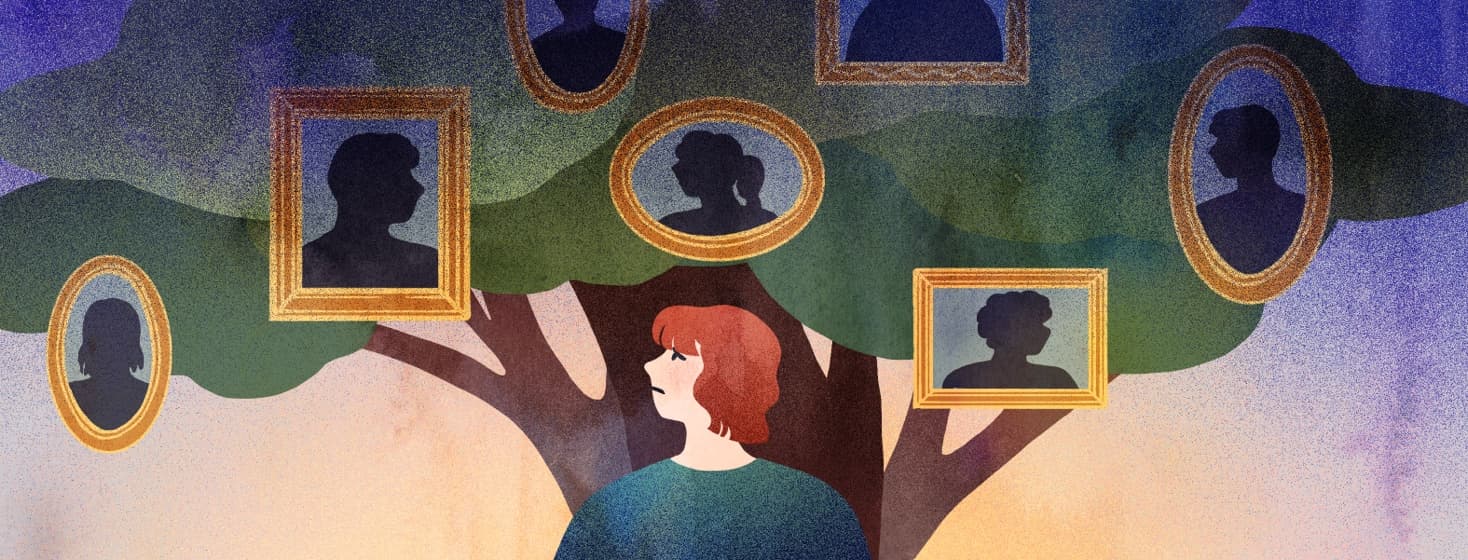How My Family History Helped Me Understand My Postpartum Depression
My therapy sessions transformed my understanding of mental health, which affected my entire family as well as myself.
Before then, I had only viewed depression in fragments: Through my family's visual history, I saw quiet sadness among some relatives, along with explosive outbursts and extended isolation periods. Others dealt with life by getting wrapped up in intense substance abuse. I constantly observed this phenomenon throughout my life, yet lacked the proper terminology to understand it completely.
Depression surrounded me in my youth
My therapy journey allowed me to study mental health and psychology, which made everything make sense. Therapy enabled me to see the profound hold depression maintained over my biological family. My maternal relatives stayed close to each other but never talked about mental illness openly. Deep depression and various mental health conditions surrounded me throughout my youth; treatment for these conditions never emerged as a possibility.
My brother received the only official mental health diagnosis in our family during his incarceration period. HIPAA regulations prevent me from learning his precise medical diagnoses, but public documents verify his treatment for a mental health condition during his prison time. I am the only family member who proactively pursued therapy to address my mental health, apart from my brother's forced treatment.
The link between family history and postpartum depression
My therapy sessions helped me understand how my family's untreated depression history relates to my postpartum depression struggles. Studies indicate that people whose families have a history of depression face a much greater chance of developing PPD. Research suggests that women with close relatives who suffered from depression face almost twice the risk of developing postpartum depression.1,2
There are a few ways that genetics, family history, and family relationship dynamics could be risk factors for developing PPD:1
- Genetic predisposition — A family history of mental health disorders is a strong risk factor for PPD
- Emotional stressors — Distressing events like the death of a loved one or family problems can increase PPD risk
- Environmental factors — Observing and learning from family members with mental health issues or mood disorders can result in the development of similarly unhealthy coping methods and behavioral patterns
For me, therapy became a turning point. Except for my brother, who was diagnosed because of his criminal record, everyone else in my family has failed to address mental health concerns actively. When I decided to get therapy, it wasn’t solely to treat my PPD. My goal was to interrupt the pattern.
Daily self-reflection and mental health check-ins
The arrival of my second baby compelled me to adopt a new approach to parenting. I actively choose to perform daily self-assessments to prevent depression from taking control of my life: Am I feeling joy? Am I overwhelmed beyond reason? Does the overwhelming tiredness result from parenting responsibilities, or is something else contributing to its intensity? Daily self-reflection through these questions keeps me vigilant and enables me to respond promptly.
The methods I use to maintain my mental health consist of the following:
- Therapy – Having a safe space to process my emotions has been invaluable.
- Monitoring my symptoms – Being mindful of warning signs helps me take action before things spiral.
- Prioritizing rest (as much as possible) – Sleep deprivation is a given with a newborn, but I make small efforts to rest whenever I can.
- Asking for help – Whether it’s my partner, a friend, or a therapist, I remind myself that I don’t have to do everything alone.
Breaking the cycle and encouraging awareness
Knowing you’re not fated to endure depression matters if you have a family history of mental illness. Awareness is powerful. Awareness of your increased risk enables you to protect your mental health through early action by consulting a doctor or therapist, joining a support group, or practicing mindfulness.
I am a mother sharing my personal story — not a licensed professional — and yet, if you find comfort in my experiences, please remember support is available to you. There is no need to endure extreme difficulties before you reach out to support services.
